Avery “Ave” Ludlow’s story in Red (2008) is one of quiet grief, unyielding moral resolve, and devastating consequences. When his beloved dog Red — a final, living bond to his late wife — is senselessly killed, Ave’s simple plea for justice runs headlong into a small town’s indifference and hidden cruelty. His steadfast refusal to be silenced triggers a spiral of violence that exposes the failures of the legal system and reopens wounds he can never fully heal.
What begins as a humble demand for accountability grows into a tragic reckoning, leaving Ave scarred yet unbroken. His struggle is a haunting meditation on the weight of memory, the cost of principle, and the lonely endurance of a man unwilling to forget.
Spoilers Ahead
Red (2008) Plot Summary & Movie Synopsis:
What Happens to Red?
Red, a dog gifted to Avery Ave Ludlow by his late wife for his 50th birthday, represents more than just a pet. He is Ave’s last living connection to his past, his wife, and a quieter life. Red’s death is not accidental. It is a cold-blooded act of violence. While fishing peacefully with Red, Ave encounters three teenage boys – Danny and Harold McCormack and Pete Doust.
Danny, the more aggressive of the group, pulls a shotgun on Ave and demands money. When Ave explains he only has $30, Danny snaps and shoots Red dead, laughing as he walks away. The act is cruel, senseless, and humiliating. For Ave, this isn’t just the loss of a pet – it is the theft of the last bit of peace in his life. Red’s murder is a deliberate attack on Ave’s emotional world. It forces him to confront a community and justice system that seems indifferent to personal loss when the victim isn’t human.
What Does Ave Do After Red’s Murder?
In the aftermath, Ave does not seek revenge. Instead, he turns to the law. His first step is practical – he visits a gun store to trace the shotgun, where a clerk helps identify Danny. With this clue, Ave visits Danny’s father, Michael McCormack, and recounts the incident. Michael confronts his sons, but they deny everything.
He then asks Ave to leave, brushing aside the allegation as if it were trivial. Despite the dismissal, Ave refuses to back down. He consults his lawyer, Sam Berry, hoping to file charges against the defendant. But Sam tells him the punishment for killing a dog is minimal. The system, as presented to Ave, does not value his grief. Still, Ave persists.
When the legal route fails him, Ave turns to the court of public opinion. Sam introduces him to Carrie, a young reporter who believes that media attention might force the authorities to act. Carrie interviews Ave for a human-interest story on television. Ave opens up – not just about Red, but about what the dog meant to him. Unfortunately, the public does not respond with sympathy. Instead of support, Ave receives a rock through his window with a threatening note.
Carrie is quickly transferred to another assignment, showing how easily the media can lose interest. With the criminal case going nowhere and media pressure waning, Ave chooses a quieter yet determined path: civil litigation. He files a lawsuit for damages against the boys, not for money, but to expose them and hold them accountable in some form. Ave’s actions stem not from vengeance, but from a deep need for dignity and justice. Red’s death reminds Ave of everything he has lost. By seeking justice, Ave is not just avenging Red; he is affirming that grief, memory, and love matter – even if the world around him refuses to see it.
What Happens to Ave’s Store?
Avery Ave Ludlow has already endured unspeakable loss. Years ago, his eldest son, suffering from mental illness, returned home and violently attacked his mother. Thinking he had killed her, he poured kerosene over her and his younger brother, setting them both on fire. His brother died instantly, while Mary, Ave’s wife, clung to life for five days before dying.
This tragedy isolates Ave emotionally and mentally. It also explains his deep bond with Red – the dog is his last companion, a living link to Mary. After Danny McCormack brutally kills Red, Ave begins his pursuit of justice – not through violence, but through legal and moral channels. He wants accountability, not revenge. As institutions fail him, Ave starts tracking the boys who murdered Red. His quiet observation is a way of reclaiming control in a world that once again feels chaotic.
Harold, the younger McCormack brother, notices Ave following them. Guilt over Red’s death weighs on him, and he apologizes. Ave accepts the apology but expresses a desire for Danny to do the same. This reveals Ave’s moral compass – he isn’t seeking punishment, but rather acknowledgment. He wants the boys to understand the impact of their actions. Danny remains defiant.
During a baseball game, he storms off after striking out, clearly unable to manage failure or frustration. When Ave follows them and parks behind their car, Danny sees this as a threat. In his rage, he attacks Ave with a bat.
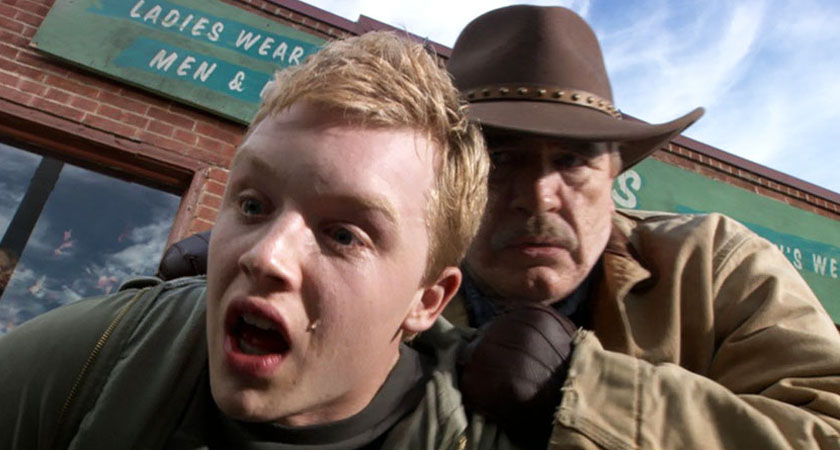
But Ave, calm and experienced, deflects the attack and knocks Danny to the ground. He then delivers a powerful line: this beating is one Danny’s father should have given him. Ave holds Danny to account in a way no adult in his life has done. Soon after this confrontation, Ave’s store is burned to the ground. No official evidence ties the crime to the McCormacks. But the sudden ability of Pete’s family, who previously struggled financially, to afford home repairs raises suspicion. The implication is clear: someone was paid off or gained something from Ave’s suffering. The fire becomes an act of retaliation, a warning to Ave for not backing down.
Ave’s store, his livelihood, is destroyed not just by fire, but by the community’s indifference. The authorities won’t connect the dots. The fire is a message: justice has a price. Ave’s quiet resistance makes him a target in a town unwilling to protect its vulnerable or punish its privileged. The burning of Ave’s store reflects how far the consequences of moral decay can reach. It’s not just about a dog or a confrontation. It’s about a man being punished for standing up in a town that punishes decency and rewards silence.
Red (2008) Movie Ending Explained:
How do things end for Ave?
Ave’s journey reaches its violent climax when he exhumes Red and brings the body to the McCormacks’ doorstep. His decision is symbolic – he wants to confront them with the truth they continue to deny. It’s a desperate act of moral clarity in a world that has ignored justice. But the McCormacks respond with force, not remorse. Michael and Danny draw pistols and order Ave to leave.
Ave refuses. His defiance triggers another act of violence. Danny fires, grazing Ave’s ear. Ave disarms him and forces him to drive to the sheriff, aiming to charge him with attempted manslaughter. This is Ave’s final attempt to do things the right way; to involve the law and avoid bloodshed. But Michael, unwilling to let justice run its course, rams Ave’s truck off the road, assuming the crash has killed him.
Ave survives and returns, now with Danny’s revolver in hand. He finds Harold, the only boy who ever showed guilt. But before any peace can be made, Michael, Danny, and Pete arrive – still armed and defiant. Harold urges them to stop, but Danny shoots Ave in the stomach. The shootout that follows is tragic. Ave wounds both Danny and Michael. But in the chaos, Harold and Pete are killed.
Two young lives are lost – one innocent, one complicit – because adults failed them. Ave tells Michael that Harold is dead, delivering the news with finality. Ave survives the gunfight and begins to recover. Carrie’s article about his story finally gains attention. She visits him, now offered a job in New York, and brings a new dog. Ave refuses at first, blaming himself for the deaths. To him, the cost of his stubborn pursuit of justice is too high. But Carrie sees his pain and leaves the dog anyway. Quietly, Ave accepts the animal.
Things end with Ave wounded, physically and emotionally, but not broken. He remains a man who sought justice in a world unwilling to offer it. He loses nearly everything, but finds a sliver of redemption in Carrie’s kindness and the new dog. It’s not closure, but it’s survival, and the beginning of the healing process.

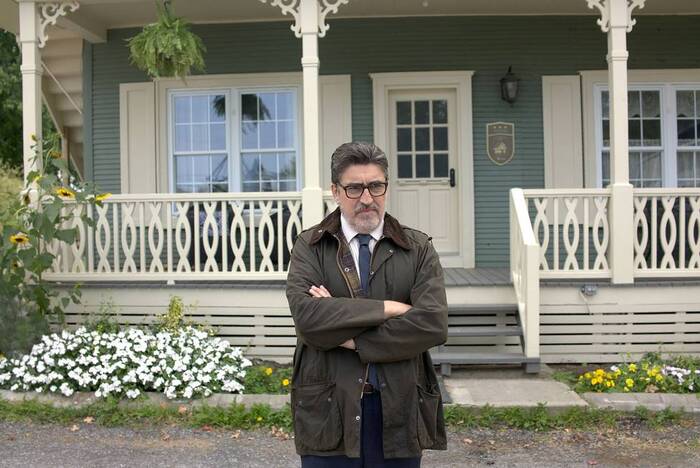

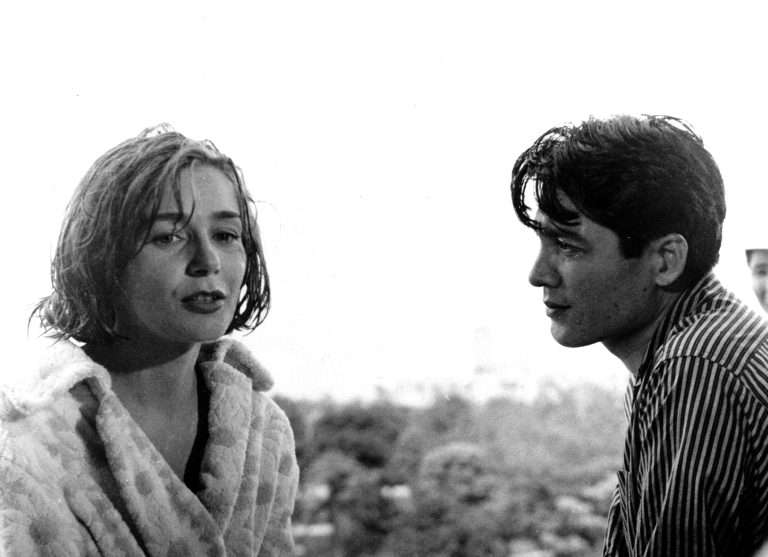
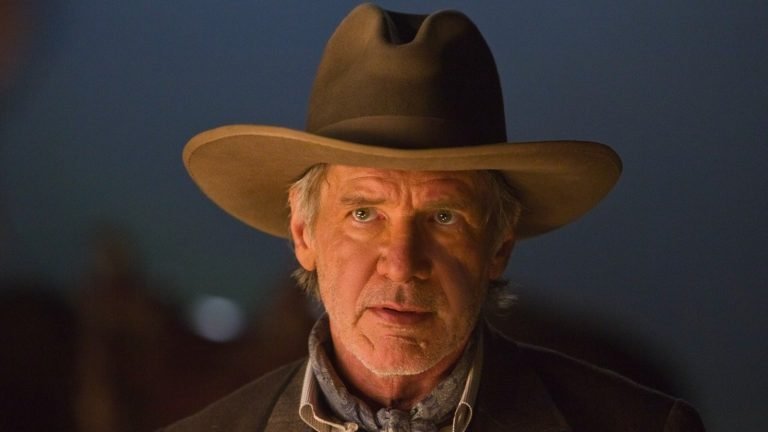
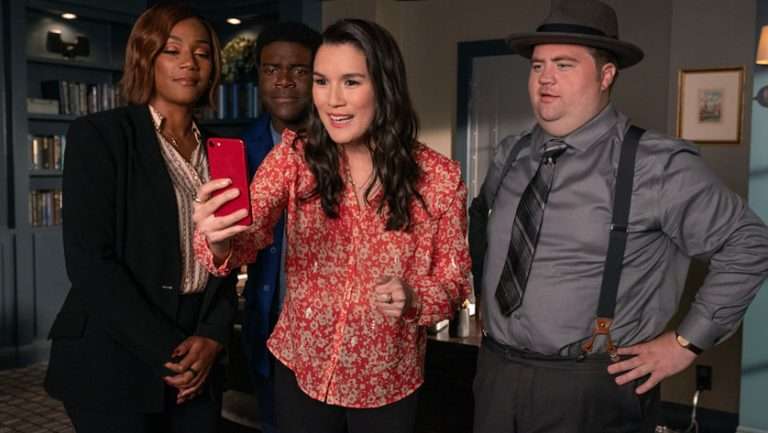
![No Fathers in Kashmir [2019]: ‘HFF’ Review – An Outsider’s perspective that imperfectly tells the story of Kashmir](https://79468c92.delivery.rocketcdn.me/wp-content/uploads/2019/05/No-Fathers-In-Kashmir1-768x419.jpg)